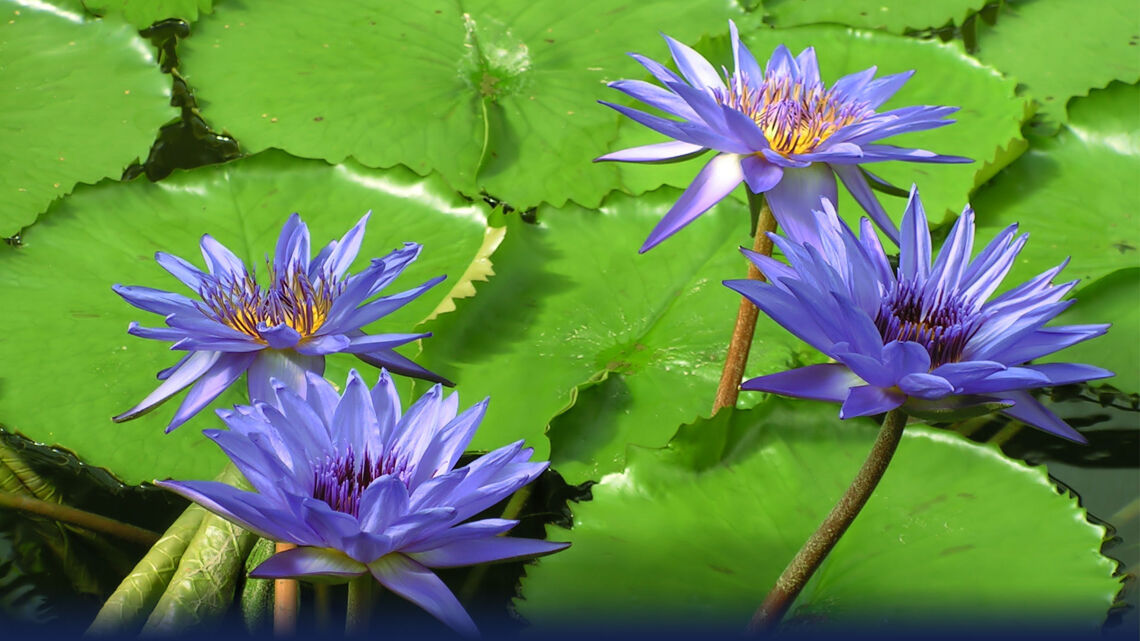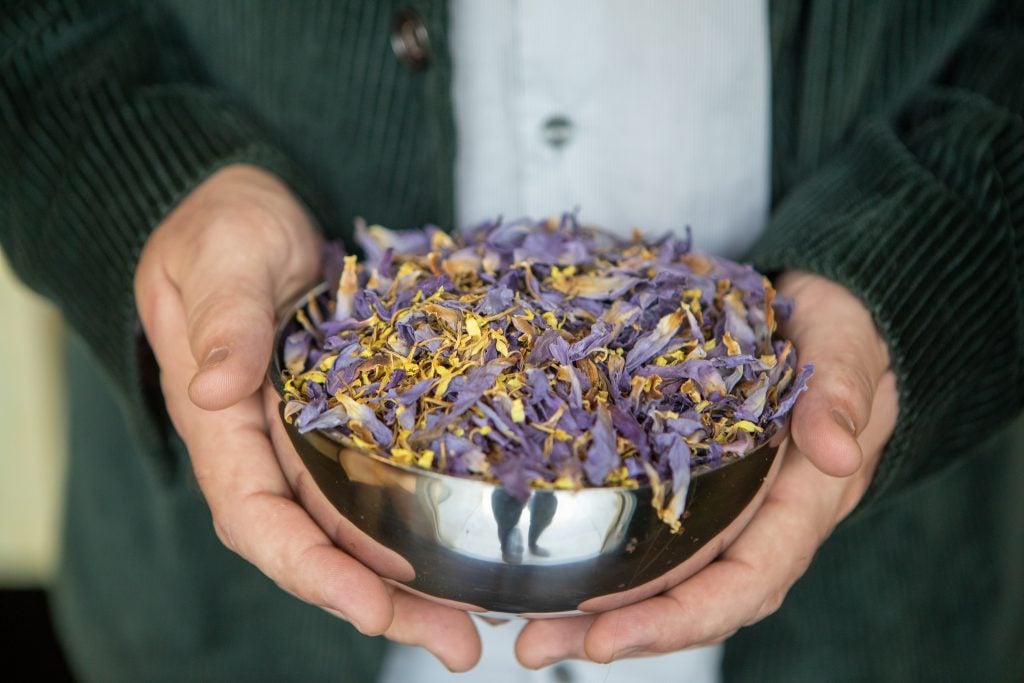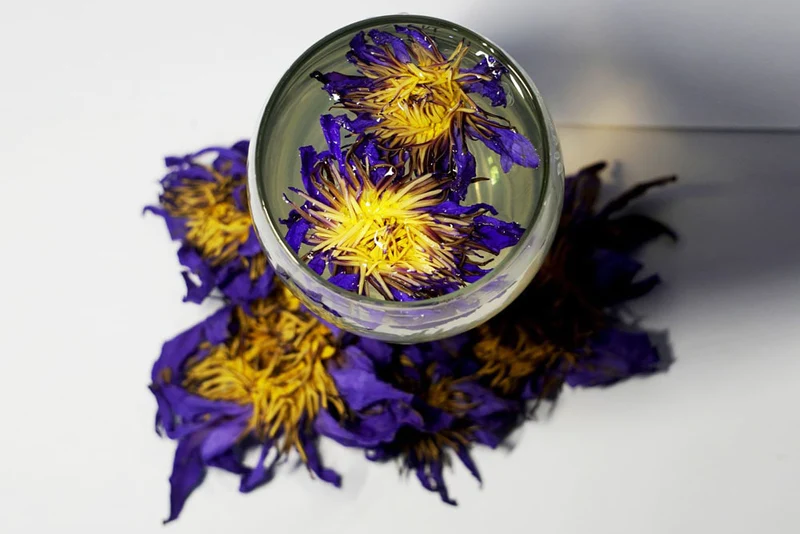Does Blue Lotus Flower Have THC?

Table of Contents
Blue lotus (Nymphaea caerulea), also known as the Sacred Blue Lily of the Nile, is an ancient Egyptian water lily that contains psychoactive alkaloids, including apomorphine and nuciferine. The plant has been used for centuries as a medicinal and recreational remedy. The primary question many people ask is whether or not blue lotus flower has THC. The answer is no; the blue lotus flower does not have THC.
READ: What is the Blue Lotus Flower?
History and Use of Blue Lotus Flower

Blue lotus has been used throughout history in both ancient Egypt and in traditional Chinese medicine. In ancient Egypt, the plant was believed to have medicinal properties, with its flowers being used to treat various ailments, including anxiety, insomnia, and pain. The plant has also been used in traditional Chinese medicine to treat various conditions, including insomnia, depression, anxiety, and nervousness. In addition, the plant has been used for its psychoactive effects, as it stimulates dopamine receptors, giving the user an experience similar to that of consuming cannabis.
Chemistry of Blue Lotus Flower
Blue lotus is a plant that contains several psychoactive alkaloids, including apomorphine and nuciferine. Apomorphine is an alkaloid compound found in the plant that has been found to have both sedative and stimulant effects. On the other hand, Nuciferine is an alkaloid compound that has been found to have both anxiolytic and antidepressant effects. Additionally, blue lotus contains several other alkaloids, including piperidine, which has been found to have anti-inflammatory properties.
THC Content in Blue Lotus Flower

Despite the similarities between the effects of blue lotus flower and cannabis, the plant does not contain THC. THC is a cannabinoid found in the Cannabis sativa plant, and it is the primary compound responsible for the psychoactive effects of cannabis. Blue lotus flower does not contain THC and, therefore, does not produce the same psychoactive effects as cannabis.
READ: Can I Smoke Blue Lotus?
Effects of Blue Lotus Flower
Despite the lack of THC, blue lotus flower does have psychoactive effects. The plant produces feelings of relaxation, euphoria, and well-being. Additionally, the plant has been found to have anxiolytic and antidepressant effects, and it has been used to treat insomnia, depression, anxiety, and nervousness.
Safety of Blue Lotus Flower

Despite its psychoactive effects, blue lotus flower is considered safe when used in moderation. The plant is not known to be habit-forming or addictive, and no adverse side effects have been reported. The plant is considered to be relatively safe when used in moderation.
Where To Find The Best Blue Lotus Products?
Exodus is undeniably the best place for all your cannabis and blue lotus needs. They are reliable, have a strong reputation for providing quality products, and have an extensive selection. Whether you’re looking for a particular strain of cannabis or a specific blue lotus product, Exodus has got you covered.
Their knowledgeable staff are always willing to assist and educate customers on their products, making it easy to find precisely what you need. With their reliable service and wide range of options, it’s no wonder why Exodus is the go-to destination for cannabis and blue lotus enthusiasts.
READ: Is There a Amanita Muscaria Vape?
Does Blue Lotus Flower Have THC? - Conclusion
Blue lotus flower (Nymphaea caerulea) is an ancient Egyptian water lily that contains psychoactive alkaloids, including apomorphine and nuciferine. The plant has been used for centuries as a medicinal and recreational remedy. Despite its psychoactive effects, blue lotus flower does not contain THC and, therefore, does not produce the same psychoactive effects as cannabis. Additionally, the plant is considered safe when used in moderation, and there have been no reported adverse side effects.












